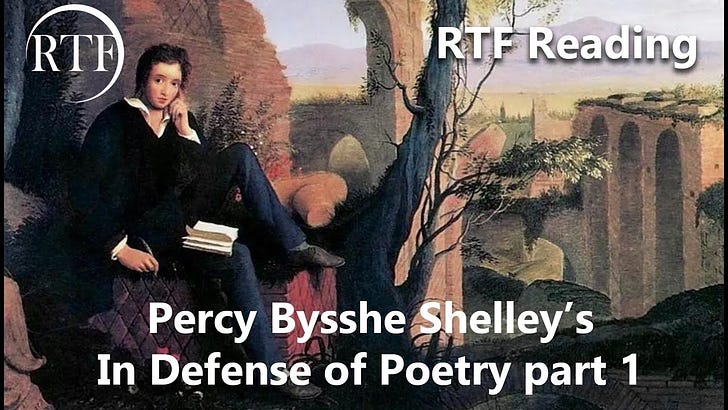Why Shelley Wrote ‘A Defense of Poetry’ and its Relevance for Today
In the wake of the 1815 Congress of Vienna which saw a suffocating cage imposed upon all forms of creative literature, art, and music deemed “insurrectionary” by the oligarchical families then restating their power after two decades of Napoleonic wars, it appeared to many that any hopes of a republican spirit in the arts and politics was dead. Censors were placed across all publishing houses and strict control of academic thought was imposed on all the universities of Europe with countless students and professors expelled from academia due to ‘thought crimes’.
Rather than waste time in the futile pursuit of cultivating creative reason through the arts and letters, the new wisdom of the day became “go along to get along” and “learn utilitarian skills more conducive to empire” such as economics, political science, history, philosophy and law.
Such was the lesson promoted by a loud mouthed propagandist for the British East India Company named Thomas Love Peacock whose “Four Ages of Poetry” was published far and wide across England in 1819.
In Peacock’s essay, the elitist author obsessed with British imperial notions of “supply and demand” contended that poetry was always the slave to the tastes of ignorant masses which he assumed must degenerate over time. As such, it was poetry’s destiny to always mirror decay and thus worsen over time in accordance with the debauched whims of mass cultural banality. Peacock stated:
…the poetical audience will not only continually diminish in the proportion of its number to that of the rest of the reading public, but will also sink lower and lower in the comparison of intellectual acquirement: when we consider that the poet must still please his audience, and must therefore continue to sink to their level, while the rest of the community is rising above it…
In response to Peacock’s ignorant criticism of poetry as an obsolete practice of the pre-industrial age, Percy Bysshe Shelley rose to the defense of his beloved art by authoring his most celebrated essay entitled “A Defense of Poetry” in 1820 (though published only 20 years after the young poet’s mysterious death in 1821).
In this essay, Shelley introduces a higher conception of poetry than anything approximated by Peacock or the new romantic school of his age, by painting a broad sweeping painting (in words) of human nature, God, and the spirit connecting the two substances which shape the contour of all history leading us to the powerful realization that poetry, from its highest definition is the expression of humankind’s deepest yearning to leap beyond the limits of nature and ignorance by shaping metaphorical conceptions of universal ideas that transcend the limits of deductive or inductive logic.
What follows is the first of two reading sessions which I had the pleasure of moderating. To participate in the second reading session (which will take place on Wednesday April 20 at 8pm EST, click on the zoom link below).
Click here to access the full text
Subscribe to the new Telegram channels T.me/RisingTideFoundation and T.me/CanadianPatriotPress
Click below to access the zoom link for this Wednesday’s reading group at 8pm EST:



